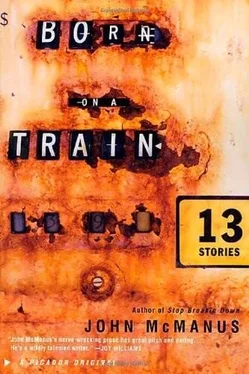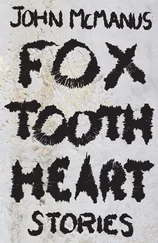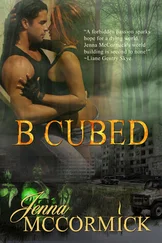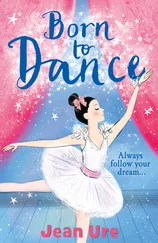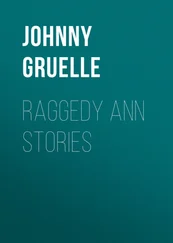Barbara burned her hand on the bumper’s chrome as she climbed in, sweating. Sheila sat down across from her with no expression on her face, and Barbara realized they hadn’t bought her anything. She wondered if it was her fault. Her cheeks were burning, so she turned her face away. She wished Sheila would quit looking at her. She watched people load their cars with bags and didn’t realize Mama was crying until Pa yelled, What in the tarnation is wrong now? The thunder of his roar caused Mama to sob out loud. What? he demanded a second time. I can’t see what you’re thinkin, he yelled at her. I ain’t got eyes in my brain.
Mama’s voice sounded like a mouse’s squeak compared to Pa’s. What are we gonna name him? she said through her tears. If he don’t end up to have to be another Floyd?
Pa stopped to think. I don’t have the first notion what to call him, he said.
Can we name him James? asked Mama. After my father?
Pa didn’t answer for a minute. Hell, he said eventually, I’ll probly just call him Floyd anyway. He scratched his chin with the index finger of his fist and nodded. It’s as good a name as any other.
They drove home south on the bypass. Barbara sat on a different side of the truck so she saw the same things this time, but backwards. The hot breeze dried her sweat but didn’t cool her down. Rhonda didn’t cry on the way home. She waved at a brand-new Toyota station wagon that followed them past the mall and onto Highway 411. At Red Food the car switched lanes and at the red light stopped beside them, to the left. A woman rolled down the passenger window. You can’t have children in the back of a truck like that, she yelled angrily at Pa. It’s against the law.
Barbara sat up to hear her father’s answer but missed it.
The woman had expensive clothes on, like the ones in JCPenney’s catalog. Do you know what will happen if you get in a wreck? she said. They’ll fly right onto the road. Their heads will crack right open like eggs.
I’ll crack her head open, Floyd muttered.
Sshhh.
Shush yourself.
Barbara couldn’t tell what anyone up front said. She heard her father cackling. Granny’s head bobbed up and down. The woman had two boys of her own in the backseat of the wagon, alert, near Barbara’s age, their belts buckled. One had a soccer ball on his T-shirt. He looked scared. I should report your license plate number to the police, the woman said. Barbara couldn’t hear Pa’s answer. She watched the boys sitting in their cool, upholstered seat and wished they’d choke each other to death. Or that Pa would wreck so she could soar across the sunrays like a cannonball, shadowing the pavement far below herself as she waited for the collision of her body with her shadow.
The woman got out of her car. Cover up the plates, Dad yelled, so Floyd put Rhonda down and took the old jeans by their ragged kneehole, dangling them behind the truck. He grinned at the woman contemptuously. Her teeth were white and straight, and her skin was fair. Barbara wanted to yell the license number to her, but she’d turned away already.
Bitch, Floyd yelled. Barbara heard laughter in the cab. Her neck burned.
The woman got into her car and slammed the door. The light turned green, and her husband propelled them south along the highway. They vanished quickly for Barbara, because she never moved, nor did anyone; Pa had stalled them at the light. Traffic sped around them, and horns honked. Eventually the signal changed to red again, and they had to wait through a whole new cycle.
The first thing the old magician did when he arrived in a new village was buy a good map, one that showed the topography and all the trails. At one time he had traveled by rail, by moonlight, along the smooth, unearthly beams, but then trains had fallen out of favor in the magician’s land, and someday they would vanish from his language entirely.
Do they replace a word when it vanishes?
In our world we do, yes. But in the magician’s world? The magician’s world is a sad, dying world. The town criers have fallen silent there. The magician wants trains to remain part of his language, but he has let himself grow very old. The words of his spells are dissolving into each other; and now ivy is creeping along the rails that carry him hopelessly and without end through the forests of Castolon.
And Wayman would have said so much more, but it had floated away, until the crickets and owls were his boy’s only night, and trains; yes, the magician loved the distant whistlings of the engines, but now, Wayman feared, the magician would be departing their lives forever.
Is he asleep? Kip whispered from the hall.
I don’t know, Wayman whispered back.
He’s not answering us, Kip whispered.
Wayman grabbed his son’s wrist and felt for a pulse. He could measure a pulse in three seconds now. He went to Kip and held him tight, because although Kip was the one dying, his lover and son were both equally fragile to him. He would need his boy to carry him into the future.
The storms are coming again, said Wayman. Look at the west.
Maybe we’ll explode out into fire and be nothing.
Kip didn’t have any spirituality at all. It saddened Wayman.
That doesn’t sound like a thing you’d believe, he replied.
I read that the poles are shifting again, said Kip. The molecules will switch direction all over earth, within us and around, every twenty thousand years, so everything we’re doing will be futile.
Wayman wasn’t a real atheist himself, but he loved his partner, and it was a terrible time to think of hurting him. You won’t even be at the ceremony, he’d tried to tell Kip, but Kip assumed his look and stared north until Wayman gave up, shuddering at what would be thought of him if there were no funeral, and what their son would think.
I suppose we’ll soldier on somehow, said Kip.
In India, the atheists float their dead away on burning funeral pyres, down the rivers and out to sea.
But he could see he was beginning to terrify Kip.
Why don’t you go ask Cobby if that’s what he wants.
Maybe in the morning, after the sunrise, said Wayman.
But Kip had exposed Wayman’s hypocrisy; even asking would be painful for Cobby. A funeral itself would be absurd. There was still a chance Cobby loved neither of them and wouldn’t care, because they kept him hidden from society in the woods in their cottage under the sweetgum tree to which the storms lowered themselves, causing great explosions. Wayman hoped Kip wouldn’t believe he’d ripped their cottage walls apart with the decisions he’d made. When they held each other, they were scared together. It was one of the promises Wayman had made to hold Kip when Kip was unhappy, sitting alone with him those years ago in the savage green valley when the feeling he’d never felt before would put him cold in the grave before he could ever live a life alone. Now Kip said they’d be electrocuted by the billowing waters. He knew what he was doing. He believed in science. The tree might live for years to come, even ripped as it was from its root system.
Kip’s voice was high and whispery and lonesome on the phone to their ancient landlady. Yes I know it’s storming, he said to her. But a tree has crushed our house. The whole house, and the car. Wayman hated to disappoint people, but Kip had gone straight to the phone, so assertive and strong as he repeated Virginia, Virginia, but Virginia just wasn’t there.
It was probably a bad connection, said Wayman.
Old people can’t take bad news the way we can.
It must be nice to be old.
She’s had some kind of heart attack, said Kip. He tried to call back. Any minute now, the windows of heaven would make them move. Wayman liked this place where no one knew him, but they had Cobby to care for, and so Kip bade him go forth into the storm’s world where the magician floated down the train tracks, eating old blackberries that had never blackened, shortening his stride to match the ties that led him straight as a gun barrel through the piney woods. The sapling trees reached above themselves and chose what stars could stay, what stars went cold. There were three ways having a dying lover was like falling in love in the first place. He couldn’t think about anything else; also he hadn’t been able to enjoy any moment of it; also it frightened him so much to change into what he’d never been. If there were more ways, they were secrets, and he didn’t care to learn them. The Bible said to walk the earth, open his eyes to it, so he’d hoped to go farther. At first the white-haired demon on the tracks was just another sapling. Wayman knew when men said Open up your eyes they meant that life was getting worse. Whatever it was, it folded its arms across its clothes, and Wayman could barely see eyes between the wrinkles.
Читать дальше
